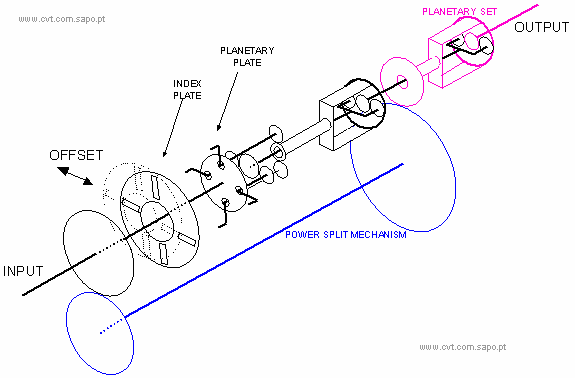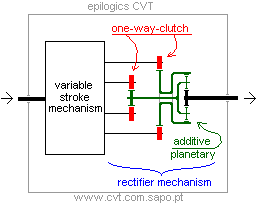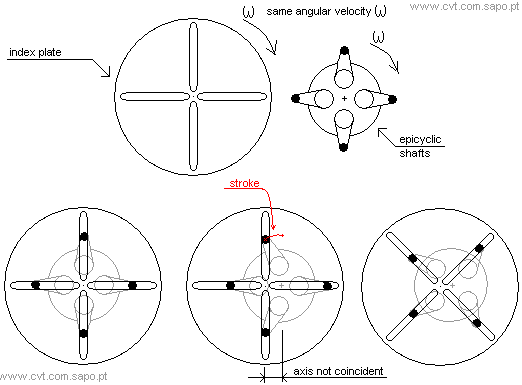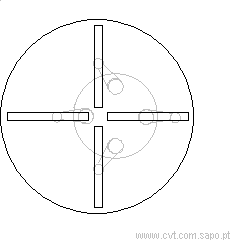| Principle: These CVTs convert uniform motion to
reciprocating motion, and then rectify it back to an "almost" uniform
motion. Firstly, there is a mechanism that produces reciprocating motion from rotational input. This mechanism allows adjustable reciprocating stroke. Secondly, the reciprocating motion is rectified by a mechanism such as a one-way-clutch (or free-wheel). Thus, the reciprocating motion is rectified to a unidirectional rotational output. It is possible to adjust the speed of this rotational output simply by adjusting the reciprocating stroke. To obtain a smoother output motion, several out-of-phase cranks are used: |
||
|
. |
| Some examples of "Ratcheting" CVTs: | ||
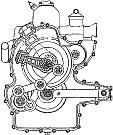 Constantinesco |
http://www.zero-max.com/ |
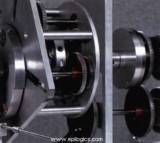 http://www.epilogics.com/ |
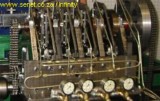 http://www.infinitydrives.co.za/ |
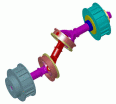 http://barloworld-cvt.com |
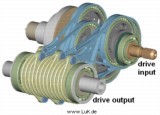 http://www.luk.de/ |
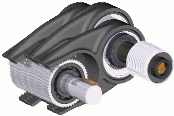 http://www.companyx.no/ |
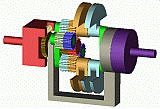 http://www.lestraneng.com/ |
 http://transrevolution.com
http://transrevolution.com
|
| Bike-CVTs (reciprocating input -> rotational output) |
||
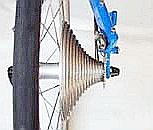 http://www.rowingbike.com/ |
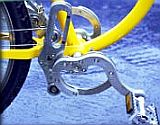 StringBike |
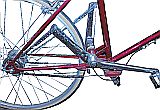 Alenax-"TransBar-Power" |
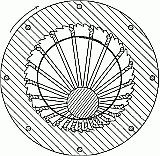 PAT-US-5950488 |
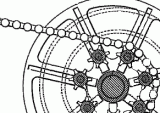 PAT-US-0724449 |
|
| .. Analysis of a ratcheting CVT approach (Epilogics IVT): |
||
|
This IVT (Infinitely Variable Transmission) consists of
a CVT connected in parallel with a
power split mechanism,
which also ensures reverse ratios: - - |
||
|
On the previous figure, the CVT module is: |
||
|
.
As you see, the shafts also rotate with the smaller planetary plate. If we could stand ourselves on the smaller plate we would neglect it's rotation. On the next animation we consider a referencial fixed to the smaller plate. This way we could clearly observe that the four epicyclic shafts oscilate:
Note that the four epicyclic shafts are oscilating out-of-phase (relatively to the smaller plate). As stated previously, these four resulting motions will
be rectified by one-way-clutches and added by a planetary gear set.
Finally, the power split
mechanism will subtract the rotation of the plates. |
||

